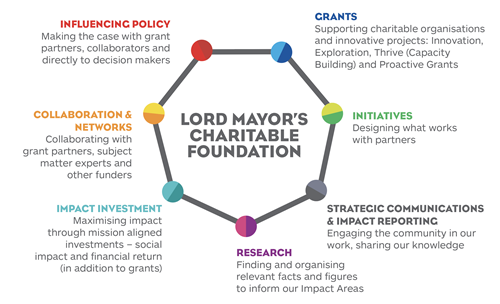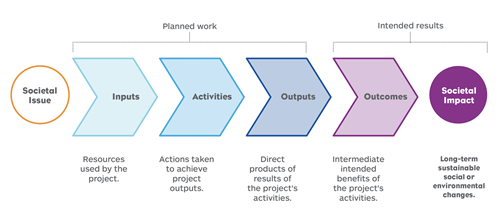Lord Mayor’s Charitable Foundation addresses the big challenges of the day facing our community.
Our work is organised around Impact Areas, which are revised following research and wide consultation with stakeholders as part of our strategic planning process.
The Impact Areas are currently alleviating homelessness; increasing community resilience to withstand major social and health challenges; reducing urban impacts on the natural environment; and reducing education and economic inequality.
The Foundation's grantmaking is driven by our vision of an inclusive and resilient community and guided by our values and granting principles. We seek out and develop projects and initiatives that reflect the many aspects of our Philanthropy Toolbox:

Click diagram to enlarge.
We also work proactively on key initiatives in our Impact Areas, including the Affordable Housing Challenge, Energy Efficiency & Climate Resilience in Vulnerable Households, Hot Spots, and Resilient & Inclusive Melbourne.
Our project logic model helps us work with our grant partners to define project specific outputs and outcomes that align with our grant partner’s and the Foundation’s own impact objectives.

Click diagram to enlarge.
This collaborative approach is designed to increase the shared impact we can have together on the challenges the Foundation has prioritised.
Grant partners report on activities, outputs, outcomes, targets and budget expenditure in Progress and Acquittal Reports. Learning is an important part of the innovation process and the Foundation is committed to sharing project findings and reports with the broader sector, including via our website.
Projects that involve partnership, collaborations and/or networks designed to increase impact are encouraged by the Foundation.